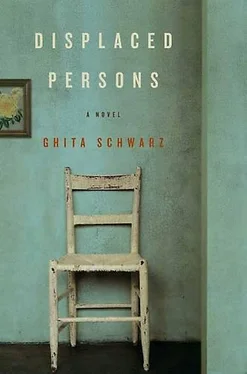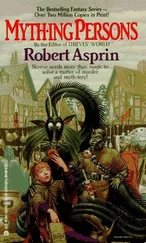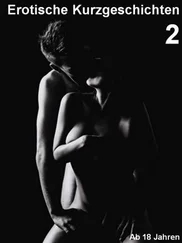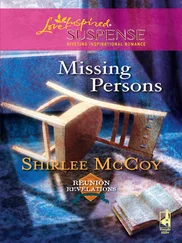But now it was she, Fela, cooking, baking, moving her hands through a busy but clean kitchen. She had crossed the border into this new body, after a time of being stateless, after a time of being no one, alone with only a memory of who she was, daughter, sister, lover, mother. She would pass into this new life. It was all right. She had crossed the border.
THE MUSICIANS ARRIVED ALL at once, in a line, almost marching. A man with a black-market violin-he once had played cello; a woman flutist, whose cheeks seemed puffed for a trumpet; and two men with identical wide guitars. Guitars, of all things! Pavel was not sure he had seen one outside of pictures. Rayzele had mentioned some kind of horn, a quiet horn, she said, but no one appeared with one. Still, this was more than satisfactory.
Pavel was wearing a plain dark jacket and trousers, made from thin Swiss wool. The others would arrive in their charity suits from America, used and mismatched. Pavel’s shirt was pressed stiff, and his hair had been clipped in the barbershop of the DP camp. The red-and-brown skullcap he wore had been knitted by Rayzele, a gift.
Waiting for the rabbi and guests as the women prepared the table and the musicians took a bite to eat, Pavel and Chaim played cards. Chaim was good, but not so good. Pavel took pity occasionally, dropping a card he could see the boy wanted.
The men with guitars chatted with Kuba. The flutist held back, nervously cutting bits of dark bread into her hand and hopping them into her mouth, like a bird.
The rabbi arrived in a soldier’s uniform, with three other men from the American zone in Bremen. Pavel jumped up when Rayzele came to tell him. It was starting! He felt a chill of excitement. Not warmth in his heart, not quite, but movement, a flutter of leaves at his ribs. A marriage. It seemed like a folktale, a story from outside his lifetime. But no! It was a normal event, part of the everyday.
The men withdrew to the sitting room downstairs to prepare the contract. The rabbi sat himself down at the center of the narrow table, Pavel standing behind him. Had he ever been witness to a signing? Perhaps as a child he had seen something like this, with the door ajar, the thin curtains flapping from the autumn garden, the smell of chicken boiling in the kitchen, the taste of apple cake stuck to the roof of his mouth, he had taken a piece without asking and no one had seen. His grandfather-
He called to Chaim. The boy should see.
But something was happening. A mutter, a flurry. From his place behind the table, Pavel floated back from his grandfather’s house to the room in Celle, to the half-frowning faces staring at the rabbi, whose words Pavel could not quite make out.
He concentrated. The rabbi was saying: Yes, yes, but how do I know? What do I know about them?
Pavel forced his mind on the figure of Marek, who observed the rabbi and Pavel with a weary sneer.
The rabbi went on, in stilted Yiddish, with a few Russian words thrown in: They say we are in the family’s house, but there are no documents. How should I know that her mother was Jewish? And we have nothing on the man, who looks as Jewish as the Pope. Now how can I perform-
Excuse me-Pavel interrupted-excuse me-
You understand-
Excuse me! Pavel turned to face the front of the man. He peered at the rabbi’s mouth, as if to change the words coming out. What are you saying? You are saying you don’t think we are Jewish? After all we’ve been through?
It’s not what I think, it’s the issue of documents-
Documents! We-documents-
Calm, calm, whispered Chaim.
But Pavel could not breathe. The words in Yiddish came out in chipped pebbles. My sister-how-brother-musicians-so much food! Around him the men were still, watching him.
And then, from the silence, soft tones of that odd sound, English. It was Chaim’s voice, the voice of a growing boy, and his words seemed to Pavel to flow easily: “Perhaps, Rabbi, you do not understand. Our documents are ashes. In smoke. In the sky.”
The rabbi’s face turned stiff. “Yes, yes. Of course.”
Pavel breathed again.
But the rabbi continued, returning to Yiddish. It’s a question of my-you know, I must prove that I know, and how can I know? There is no proof. No certificates. I understand, but how can I show it? I have certain obligations, not just to the rabbinate, to the army-
Come, Mr. Chaplain, said Pavel, forcing a smile. Sit with me for a glass of schnapps. I have a fresh bottle for you to take back to your family in America -
No thank you.
Or to your friends in the barracks-
I said no.
Pavel looked down and saw his fingers folding and unfolding. The muscles in his arms had extended. He knew that his chin was out and his lips were trembling over his teeth. This was impossible! The musicians were here. He had paid a small fortune, for travel, for food for what was it?-thirty guests! God in heaven would laugh if he still had the nerve. A rabbi, an American, but an idiot.
This is impossible! Pavel croaked aloud. What you are saying is impossible!
Pavel, Pavel. Fela had trotted into the sitting room, pulled him away from the rabbi, pulled him into the front hall. His right arm was raised in an L, his fist was a stone. His voice was a whirring river trapped in his mouth. Pavel.
She is getting married today. He shook the words out of his mouth. The musicians are here. All this food!
Yes, yes, said Fela. Something will work out.
He won’t take a gift! Nothing! Americans! So rich and so stupid, stupid!
Pavel, we can have the party today and the wedding tomorrow. Or someone else-we don’t need a rabbi-
Absolutely not! Who ever heard of the party first? Hinda is getting married today, and by this rabbi, if I have to kill him.
You will not kill anyone. Fela’s voice rolled flat, exhausted. Now is not for killing, Pavele. She pulled him down to the sofa, smoothing her dark blue skirt. Please, Pavel. Now is for thinking.
They sat in silence. Pavel was shaking. Fela’s hand was rubbing his arm while she whispered at him: Shh. Shh. Now is for thinking. So? Let us think.
SIMA THOUGHT HER MOUTH would make steam when she exhaled, but she was wrong. It was strange: in the hardest winter of her childhood, her breath had come out of her mouth like smoke from a chimney, white clouds that took more than a moment to vanish. But here, where everything was heat, the perspiration on her skin, the tears in her eyes, even her burning hair, her mouth could not make steam. She told her mother of her discovery-but her mother lay still, her face toward the corner of the sheet that separated them from the others, the coolest part of the oven. It had been three months in the barracks already, and in that time the health Sima’s mother had regained in the camp hospital had faded. She spent the painful August afternoons half-undressed, a wet cloth across her head and another on her neck. She was weak, her father said to Sima, very weak, and Sima was to be quiet around her, not to move so much, not to generate more heat in their small space.
Sima rinsed her mouth and swallowed from the container of potable water her father had brought for them at dawn. She stepped outside the sheet that sheltered their possessions and climbed down the barracks steps. She knew where to find her father. He had a card game that began in the late afternoons, when the men would emerge from the shade of their dwellings. Some of them had been in the refugee camp six months, nine months, a year, trapped behind the barbed wire that surrounded the low buildings.
It’s Berele’s daughter, someone said. Coming to help her father win.
I need the help, said Berel. Believe me.
Sima believed him. His worn blue shirt was unbuttoned to his navel, and his undershirt was yellow with dirt and sweat. But he concentrated on the damp cards in his hand. A red queen, a seven of spades. Sima was seven. She smiled.
Читать дальше











